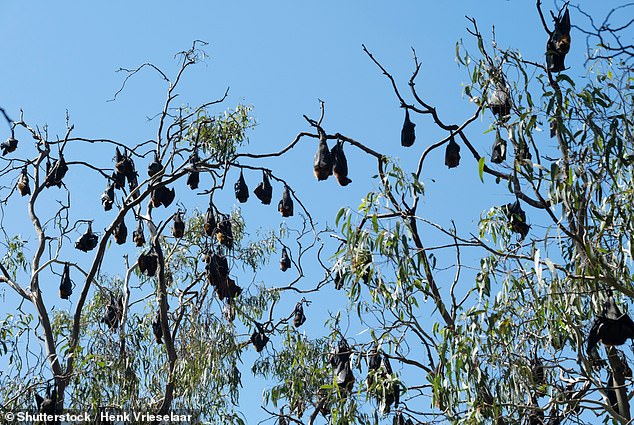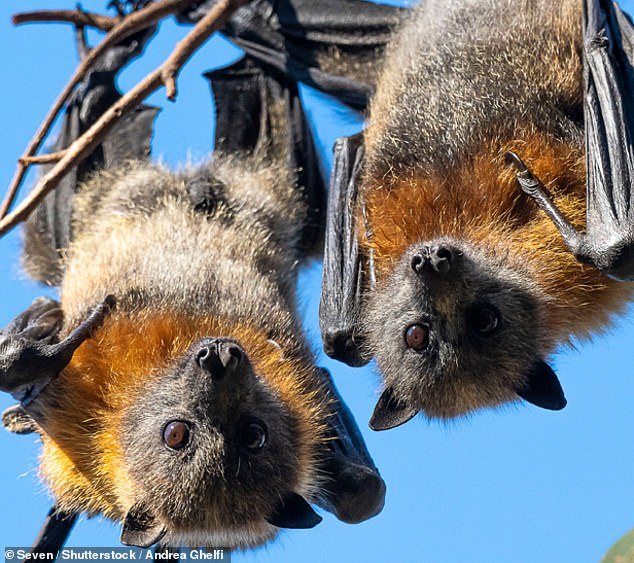Health authorities are desperately trying to identify four children who played with a bat suspected of transmitting a deadly rabies-like disease.
The children, aged between 3 and 10, were playing with the bat at Nerima Gardens about 10am in Queens Park, Ipswich, southwest of Brisbane, last Saturday.
It is suspected that the bat was infected with a deadly rabies-like disease known as lyssavirus that could have been transmitted to children.
Witnesses who saw the bat at the time reported that the animal appeared to be sick and was showing signs of the virus.
Queensland health authorities are desperately trying to identify four children who may have been infected by a bat (file image pictured) carrying lyssavirus.
Health officials have confirmed that several bats in the area have tested positive for Australian Bat Lyssavirus (ABLV).
West Moreton Health issued a statement Friday requesting information to identify the children.
“It’s an unusual step for us to go out into the community (for help), but other ways of identifying children have been successful,” said Dr. Penny Hutchinson, a public health physician at West Moreton Health.
‘ABLV is a serious and potentially deadly virus. If you or your child had any contact with the bat, immediate action is necessary, even if you do not have any symptoms.
Authorities have said people should not panic about the latest alert and said they are trying to identify children to prevent the virus from spreading to others.

West Moreton Health Public Health doctor Dr Penny Hutchinson (pictured) said health officials are trying to identify children as they could spread the virus to others.
Lisavirus is a very rare disease that is transmitted from bats to humans and is closely related to rabies.
A lyssavirus infection can cause death if the symptoms of the disease, which include headaches, fever, and fatigue, are not treated.
The virus can stop muscle movement causing paralysis and can also cause seizures.
Dr. Hutchinson said health authorities want to ensure children receive treatment before they start to develop symptoms.
An infected person may begin to show symptoms in just a few days or it may take up to eight weeks for signs of the virus to appear.
Dr Hutchinson urged people to stay away from bats and avoid contact with the animals if they are sick, injured or trapped.
“It is important to remind the community that the only people who should handle bats and flying foxes are handlers who are trained, vaccinated and wearing appropriate protective equipment,” he said.
“Ninety-nine percent of bat exposures occur through people handling bats.”

Lyssavirus is a very rare disease that is transmitted from bats (file image in photo) to humans.
Anyone who is bitten or scratched by a bat, or who is exposed to bat saliva through the eyes, nose or mouth, has been urged not to rub the wound.
The infected person should wash the wound gently and thoroughly for at least five minutes with soap and water.
Antiseptics and antiviral action, such as povidone-iodine or alcohol (ethanol), should also be applied to the wound, if available.
People should rinse their eyes, nose, and mouth with water if bat saliva gets on these parts of the body.
If a person has been bitten by a bat or has been exposed to bat saliva, a doctor or the nearest hospital should be contacted immediately.
Anyone who sees a bat should contact the RSPCA or a wildlife carer to collect it.


